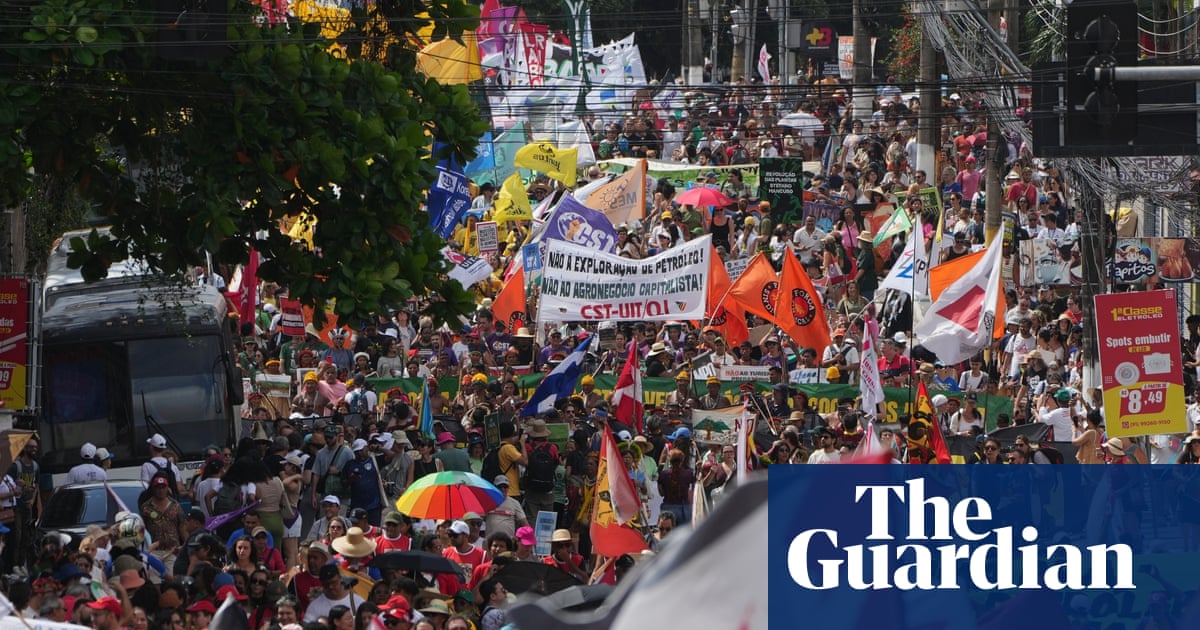
"Early in the day, below a huge inflatable globe, a large group of indigenous protesters, many with face paint and feathered headdresses, were chanting as they waited for the march to begin. Raquel Wapichana travelled nine hours from Roraima to attend. She carried a sign saying: Let's struggle. She said: I am here for my people, my land, our rivers and our ancestors. We are constantly threatened by mining, by agribusiness and by land invasions. We must fight for our survival."
"A dozen mourners dressed in black rallied below two large ghoul puppets and three enormous coffins bearing the words coal, oil and gas. One woman, who gave the name Krishna and said she was an actor from Belem, looked like a figure from a Victorian horror story in a black lace veil and umbrella. Our lives depend on getting rid of fossil fuels. Our children and our future depend on our struggle. Through my art, I am here to fight."
Thousands of people marched in the streets of Belem demanding urgent climate action during the midpoint of contentious COP negotiations. The Great People's March was the first major protest outside the annual talks since Cop26, following previous gatherings in locations with limited tolerance for demonstrations. Indigenous contingents travelled long distances, including Raquel Wapichana, who travelled nine hours from Roraima, carrying signs and warning of threats from mining, agribusiness and land invasions. Protesters staged a theatrical funeral for fossil fuels with mourners, ghoul puppets and coffins labeled coal, oil and gas. Anti-capitalist banners criticized an Amazon oil energy transition and called for systemic change.
Read at www.theguardian.com
Unable to calculate read time
Collection
[
|
...
]